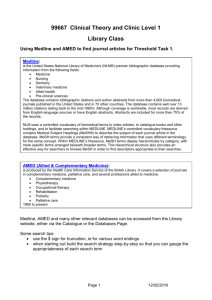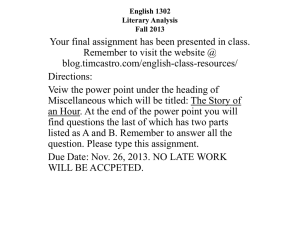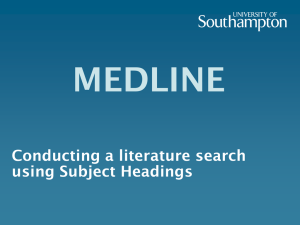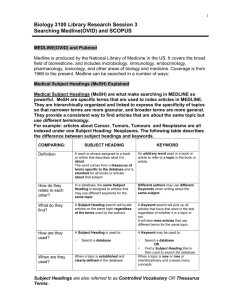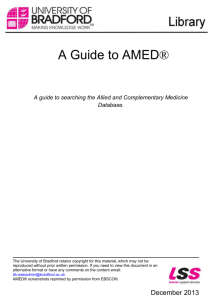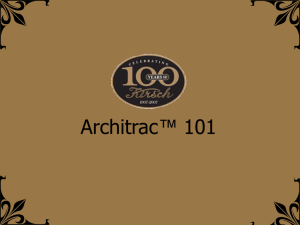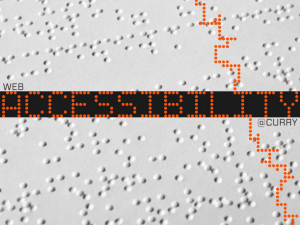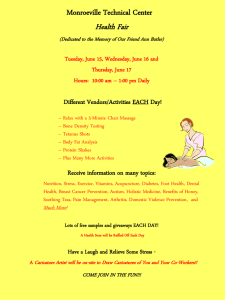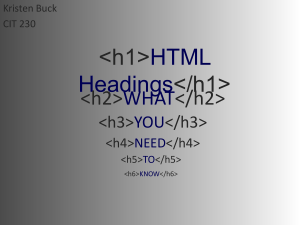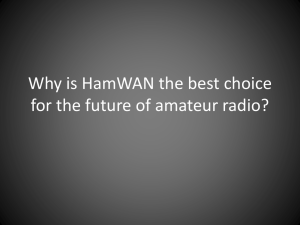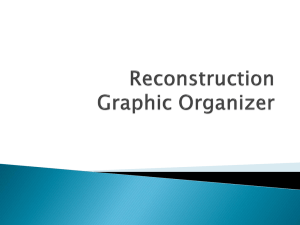Medline & AMED
advertisement
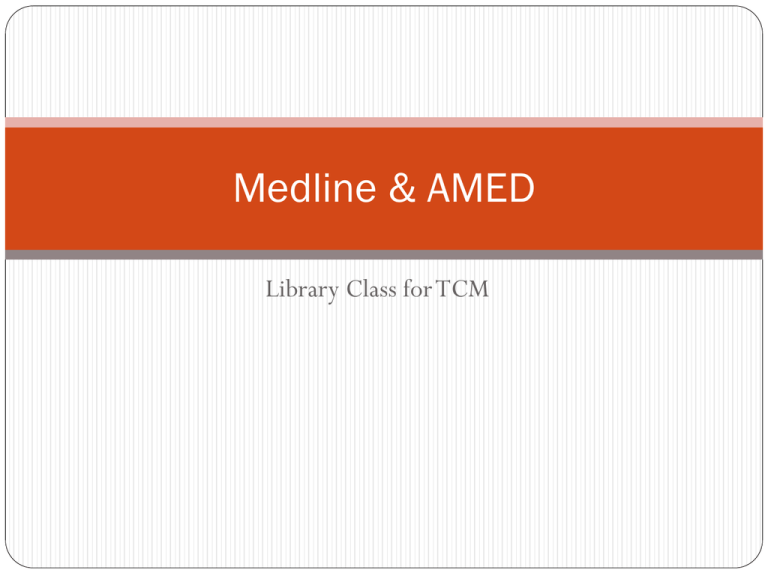
Medline & AMED Library Class for TCM Medline MEDLINE® is the U.S. National Library of Medicine's® (NLM) premier bibliographic database that contains over 16 million biomedical journal articles. A distinctive feature of MEDLINE is that the records are indexed with NLM's Medical Subject Headings (MeSH®). Medline Time coverage: 1950- Subject coverage: Medicine, Nursing, Dentistry, Veterinary medicine, Allied health, Pre-clinical sciences Source: Currently, citations and abstracts. Citations are from approximately 5,200 worldwide journals in 37 languages. Abstracts are included for more than 75% of the records. Full text of some articles can be located by clicking SFX links. Medline MeSH is the National Library of Medicine's controlled vocabulary thesaurus. It consists of sets of terms naming descriptors in a hierarchical structure that permits searching at various levels of specificity. Each reference is associated with a set of MeSH terms that describe the content of the record. Similarly, search queries use MeSH vocabulary to find items on a desired topic. Subject headings at various levels Medline There are 25,186 descriptors in 2009 MeSH. There are also over 160,000 entry terms that assist in finding the most appropriate MeSH Heading, for example, "Vitamin C" is an entry term to "Ascorbic Acid." AMED The Allied and Complementary Medicine Database (AMED) is a unique bibliographic database produced by the Health Care Information Service of the British Library. It covers a selection of journals in complementary medicine, palliative care, and several professions allied to medicine. AMED Time coverage: 1985- Subject coverage: Complementary medicine, Physiotherapy, Occupational therapy, Rehabilitation, Podiatry, Palliative care Source: Currently, citations from 596 journals mainly European. Abstracts are included for the records published from 1995 onwards. Full text of some articles can be located via SFX. AMED Each record includes controlled indexing terms using the AMED Thesaurus based on MeSH (Medline indexing terms). The software provided to search AMED usually includes an option of searching using the thesaurus. Ovid Medline Advanced Search Keyword search For example, find papers relating to acupuncture and adverse events (or effects). Search Strategy: acupuncture AND (adverse events OR adverse effects) Tips: find out synonyms for each keyword or phrase use “*” for truncation , “?” replace one character Advanced Search– Keyword search Advanced Search– Keyword search Some of the resulting papers are not relevant. Advanced Search Map to Subject Heading Find a Subject Heading in a relevant paper via Keyword Search. Map term to Subject Heading: use a keyword or phrase to find its Subject Heading Tips: 1. Click on a subject heading to view more general and more specific terms within the tree. 2. Click on scope link to check the subject heading meaning. Find a Subject Heading in a relevant paper. Advanced Search– Map to Subject Heading Use a keyword or phrase to find its Subject Heading Advanced Search Map to Subject Heading For example: find an article documenting spinal cord puncture by acupuncture. Search strategy: 1. Find the Subject Heading relating on Spinal Cord Injury: Spinal Cord Injuries 2. Find the Subject Heading relating on Acupuncture Treatment and Adverse Events: Acupuncture Therapy/ae [Adverse Effects] 3. Combine two search results with “AND” Combine search results in Search History Advanced Search – Author search Author Search For example: Locate the abstract of a study conducted by AJ Norheim published in 1994 on the complications of acupuncture therapy. Search strategy: 1. Enter the Author's last name, a space, and first initial : Norheim, AJ 2. Select the Publication Year: 1994 Select author name in Authors Index Advanced Search Title Search Enter a word or phrase to be searched in the title: Risks and Practice and Traditional Chinese Medicine for “Risks AssociatedWith the Practice of Traditional Chinese Medicine: An Australian Study ” SFX menu helps you find fulltext Fulltext from other database Refworks--bibliographic software Create a new account if you haven’t got: http://www.lib.uts.edu.au/students/discover-yourlibrary/referencing-and-writing/refworks Set a folder under the “Folders” in your Refworks. Export the search results you’ve selected into Refworks and put into the folder. Selcet “Harvard UTS” Output Style into Favorites from Output Style Manager. Format a Bibliography from a List of References in Harvard UTS style. Have a question? Welcome to ask librarians in Science and Technology team: Janet Chelliah Janet.Chelliah@uts.edu.au John Mueller John.Mueller@uts.edu.au Patrick Tooth Patrick.Tooth@uts.edu.au Jane van Balen Jane.VanBalen@uts.edu.au Meijun Huang Meijun.Huang@uts.edu.au Ashley England Ashley.England@uts.edu.au
